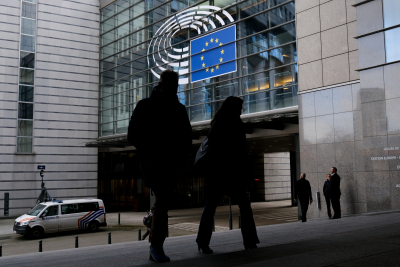On April 3rd 2016 – exactly a year ago, the Panama Papers, a trove of 11.5 million files leaked from the Panama-based law firm Mossack Fonseca, revealed how the global financial industry sells financial secrecy to politicians, football players, celebrities as well as fraudsters and money launderers. The leak exposed more than 214,000 offshore companies and trusts connected to people in over 200 countries and territories. In particular, 12 current and former world leaders and 140 politicians and public officials from around the world were found to retain secret offshore holdings. A year later, more stories continue to show the problems of shell companies and money laundering. as the Global Laundromat case which exposes how billions of dollars have been moved out of Russia and laundered through European banks and a network of anonymously owned companies mostly based in the UK. The common thread to these stories is the way the current rules of the global financial system allow obscuring the identity of the person who ultimately owns or controls the money or assets. This is done by disconnecting the true or beneficial owner from formal ownership or control via the setting up of complex schemes involving shell companies and trusts, the use of nominees and bearer shares and multi-layering through offshore secret jurisdictions.
The scandals show the need for greater transparency over beneficial ownership. The global impact of the Panama Papers demonstrates the benefits of public disclosure of beneficial ownership information: eight months after the scandal, at least 150 inquiries, audits or investigations had been announced in 79 countries.
The Panama Papers have created political momentum in favour of greater beneficial ownership transparency at global, European and national levels. At the London Anti-Corruption Summit in May 2016, six countries committed to public registers of beneficial ownership and six others stated they would consider doing so. At the European level, the European Commission has announced further improvement to beneficial ownership transparency provisions of the 4th Anti-Money Laundering Directive (AMLD IV) adopted in 2015. A few national champions are also emerging: the UK and Ukraine already have public registers in place and Denmark is expected to set one up during summer 2017. Slovenia recently introduced legislation for a public register and plans for introducing similar legislation in the Netherlands are underway.
At Transparency International EU, we have been following closely EU efforts to address the loopholes and gaps exposed by the Panama Papers. On 5 July 2016, the Commission released a proposal to revise European anti-money laundering rules. Though some loopholes remain, the proposal makes a major step towards greater transparency by establishing public disclosure of beneficial ownership information as a principle. Since then, both the Council and the Parliament have adopted their mandate for the trialogue negotiations that just started in March and are expected to be concluded by June 2017. The former is disappointingly unambitious while the latter would contribute to addressing major gaps exposed by the Panama Papers.
Transparency International EU urges European leaders to take bold action in favor of greater transparency over beneficial ownership. If there is one lesson to remember from the Panama Papers, it is that only greater public scrutiny and accountability will help achieve the ambitious goal of clamping down on money laundering and tax evasion.
On April 25th Transparency International EU will be hosting a conference on what steps the EU has taken to combat money-laundering since the Panama Papers. Full details here.




